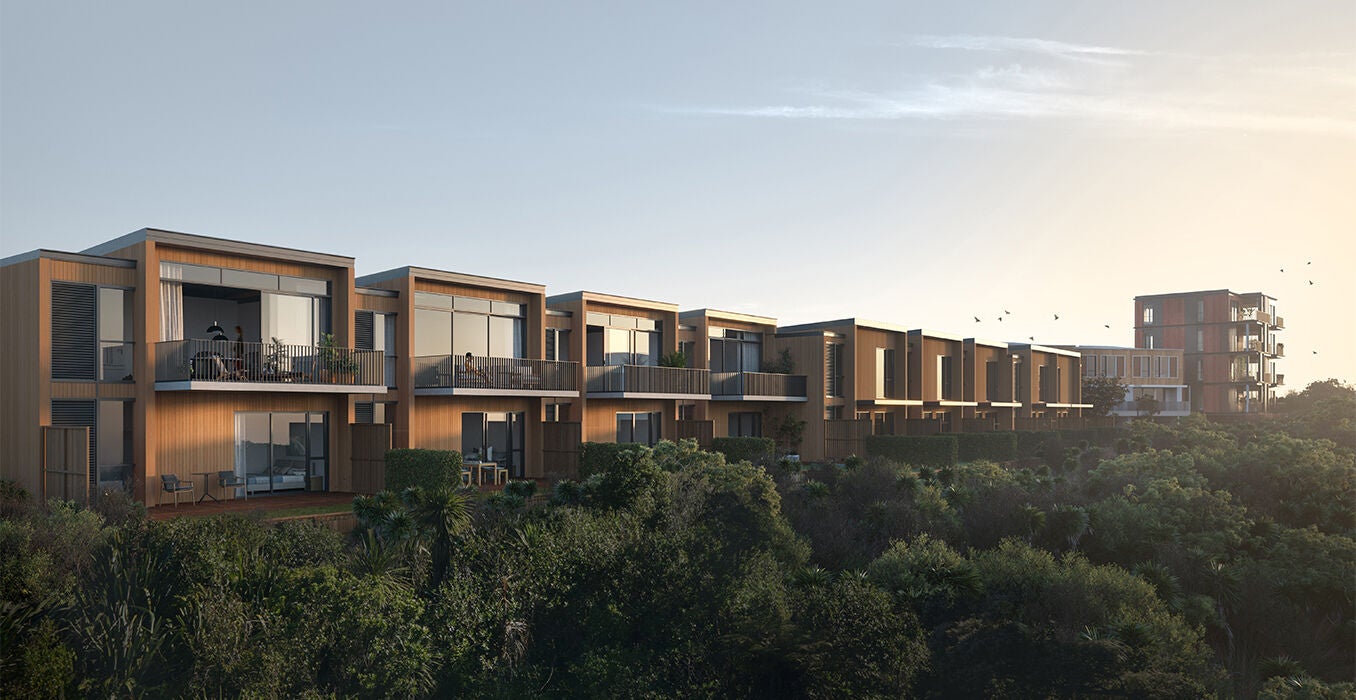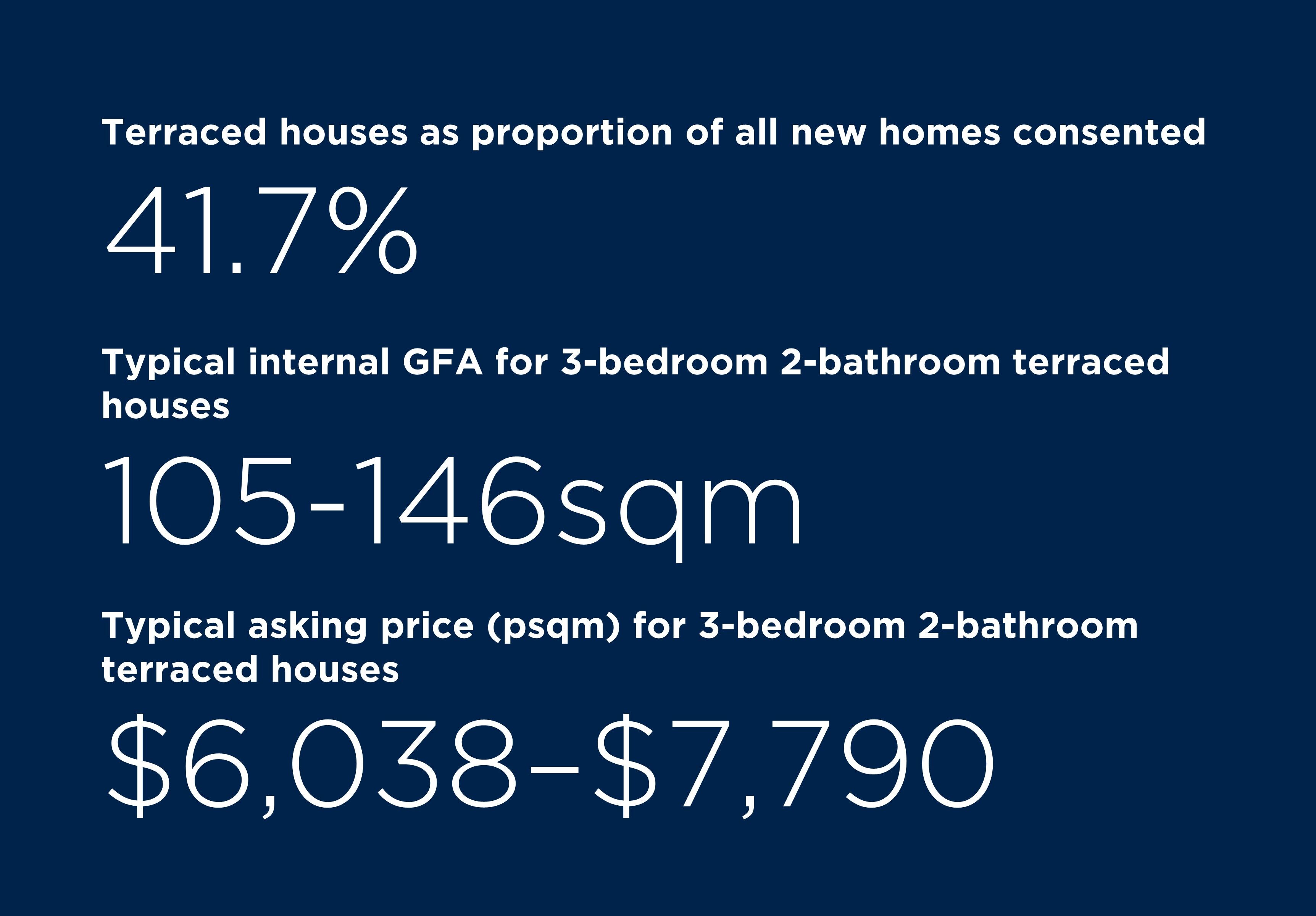 Artist's impression
Artist's impressionResidential -
New build terraced housing update - Q1 2024
In this report, you will discover the biggest trends in the new build terraced house market, plus a range of outlook for the market.
Biggest trends
Terraced housing now the dominant new build supply
After decades of standalone housing dominating the supply pipeline, terraced housing is now the most common new build housing typology in the major cities and for the country overall. Standalone housing remains common outside of the major cities. This trend is driven by affordability and greater acceptance by buyers of more intensive housing.
Wider residential market starting to recover
Independent forecasters are typically predicting house prices will rise over 2024. Interest rates are likely to be the main influence on the market in the short term. Strong migration and constrained housing supply are likely to continue to drive long-term price growth.
Migration boosting demand
Surging migration is adding pressure to the housing market. Pressure is initially focused on the rental markets given migrants tend to rent first. Expected this will place pressure on first-home buyers to purchase and will encourage more activity by investors.
Outlook for the market
Terraced homes getting taller
Developers are increasingly delivering narrower three-level designs, rather than the two-level designs that were more common historically. This is driven by developers seeking more intensity, more permissive planning rules, and buyer demand for car parking.
Specifications becoming more consistent
The specification for new build terraced housing is becoming more standardised across the market. Price differences are typically driven by location and bedrooms, rather than quality specification. This might also create the opportunity for developers to differentiate their product by offering truly high-end specifications in locations where demand might exist.
Slower sell down
Persistently high construction costs mean higher prices are needed for new developments to be feasible. Combined with softer market conditions, this is leading to slower sales of new product and some schemes pausing until the market improves.
